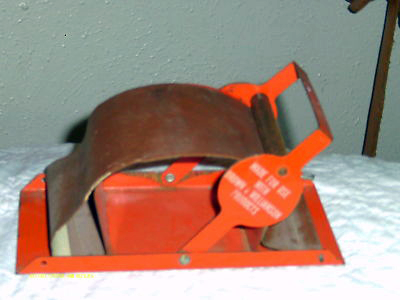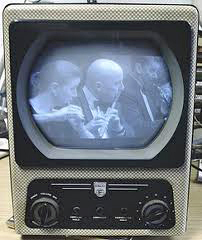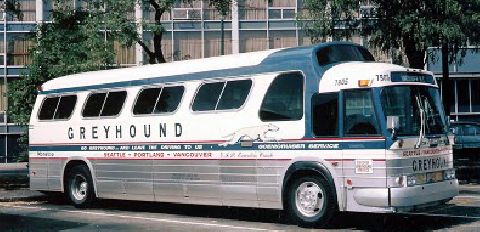It Was All New and Improved
When “The War” ended in 1945 we had lived with shortages for four long years. We were ripe and ready for new things. Our factories had learned to mass-produce guns, planes, tanks, and trucks. Now with the war over they were “all dressed up with no place to go.” They needed a challenge and we needed “stuff.” A love affair more intense than anything Hollywood ever created developed between Mid-Century Consumers and American capitalism.
One of the shortages during the war was cigarettes. Tobacco was plentiful but ready-made cigarettes were going to “our boys.” Home Front smokers had to fend for themselves. Although “country boys” have always had the knack of making a cigarette with a sack of “Bull Durham,” a little spit and a cigarette paper, city boys were too refined to lick cigarette papers and roll up a smoke. American ingenuity solved that problem just as it was solving other wartime problems. The tobacco companies invented a cigarette-rolling machine for home use. It took no electricity and was devilishly simple to operate. With that little machine, a can of tobacco, and a pack of rolling papers a guy could produce dozens of well-formed cigarettes right on his kitchen table in just minutes.

If he didn’t want to bother and had kids one of them was always willing to roll cigarettes. That gave him a chance to pocket a few in the process. The war ended and those machines disappeared before smokers caught on to how much money they could save in using them.
But we weren’t just saying goodbye to shortages. Soon we were “gosh-gee-whizzing” over all kinds of new things. In our town we heard about television long before we saw it. It was hard to imagine a radio that showed pictures of the people doing the talking. Then it was sprung on us! It may not have been the first TV in town, but the first one most of us saw was installed in a little café way out on East side of town. For weeks that café was busier than a con man in a roomful of old folks. They were serving food to people who would have eaten anything. Food wasn’t the reason we were there. Our eyes were fixed on a little screen mounted high up one corner or the room.

We watched in awe as that black-and-white, snow-filled screen showed us whatever the station manager in Tulsa threw our way. For much of the afternoon it was “Test Patterns,” Soon, TV antennas were rising above the rooftops all over Caney. Stores on “Main Street” began selling something called “TV Trays” while grocery stores began stocking the new, frozen, “TV Dinners” that could be cooked in the oven and served on those trays. At home we ate sitting in the living room, our knee's between the spindly legs of a TV tray, with our eyes focused on wrestlers, Milton Berle, and whatever. During those "family moments" the conversation often consisted of: "The picture is flopping, fix the horizontal," "It looks like they're all leaning to one side, go fix the vertical," and too frequently a sharp outburst of "LEAVE IT THERE, DON"T TOUCH IT." "Fixing" those things meant that someone had to go squat in front of the screen and fiddle with the adjusting knobs while someone else sat on their chair and told the "fiddler" how the picture looked.
Car dealers began selling “sizzle” rather than “steak” and Greyhound Bus Lines joined in the “New and Improved” frenzy in an effort to tempt us to “Go Greyhound.” They took out an ad in The Caney Daily Chronicle telling us that one of Greyhound’s “NEW” busses was on tour, would soon be coming our way and would actually stop at our little bus station. This was big news because the busses we rode before and during the war were “boxes” filled with uncomfortable seats, mounted on a truck frame. The new Greyhound had air suspension, soft seats that reclined, picture windows to look out of, and air conditioning.

Posters went up telling us that anyone who showed up at the bus station on the big day would be given a free ride around town while sitting in luxury high above the street. When that day came, most of the passengers were kids. But maybe that’s the way they wanted it. We were the future riders. The driver took us up and down the "Main Drag" and around town a bit while we waved at people, lay back in the seats, and dreamed of the day we would “hit the road” in a new Greyhound bus.
About the author
Comments 5
Don, I LOVE the way you describe your scenes.I can't imagine how vauable this will be to our grandchildren. For me, I had no idea about the cigarette rolling machines. Really cool. I do recall either being the one to fix the horizontal or telling someone else to do it. They were the EXACT words. Too much! Great story!!
Thanks Tom, I deeply hope that ALL the stories being accumulated in the "Legacy Project" will in some manner survive and be freely available to our grandchildren and their progeny. So much goes on in life that is "real life" that never makes it into history books.
I remember being 40 miles from Oklahoma City in the late 1950's haveing to go outside and adjust the the antena towards Oklahoma City to get a stronger signal.
"Ride the Bus and leave the driving to us" was heard occasionally as my Uncle Mike Goss was a Greyhound Driver for much of his adult life, even surviving a heart attack while driving cross country. The first TV I saw was in a huge cabinet and it had a small screen. We pretended that it was color TV by putting different colors of plastic wrap over the screen--sometimes orange, sometimes green, sometimes blue. You have a way with words the conveys and carries the reader back to "that time". Well written.
Thanks Virgil. I suppose it goes with being an old man, but I have warm, nostalgic feelings for my life in the 1940's despite the fact that my favorite brother (of whom I've written was Killed in Action in 1944.) It was a fabulous time to be a kid in a small Southeastern Kansas town.




